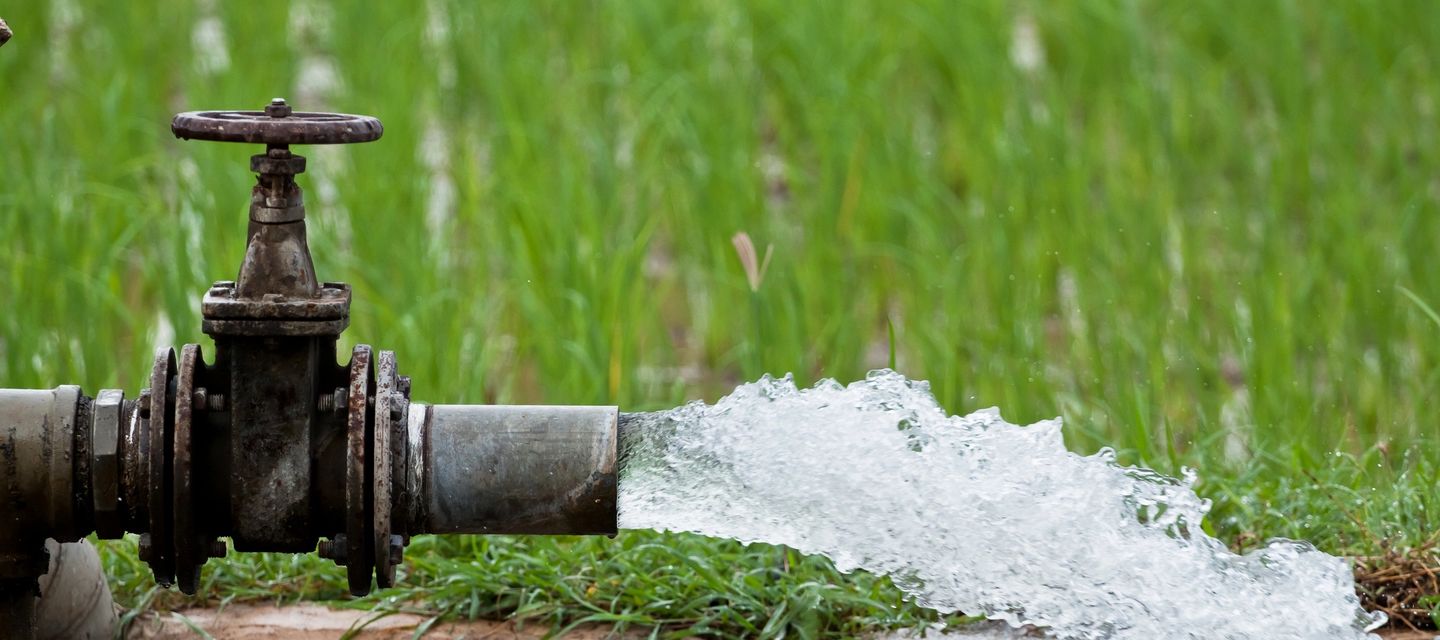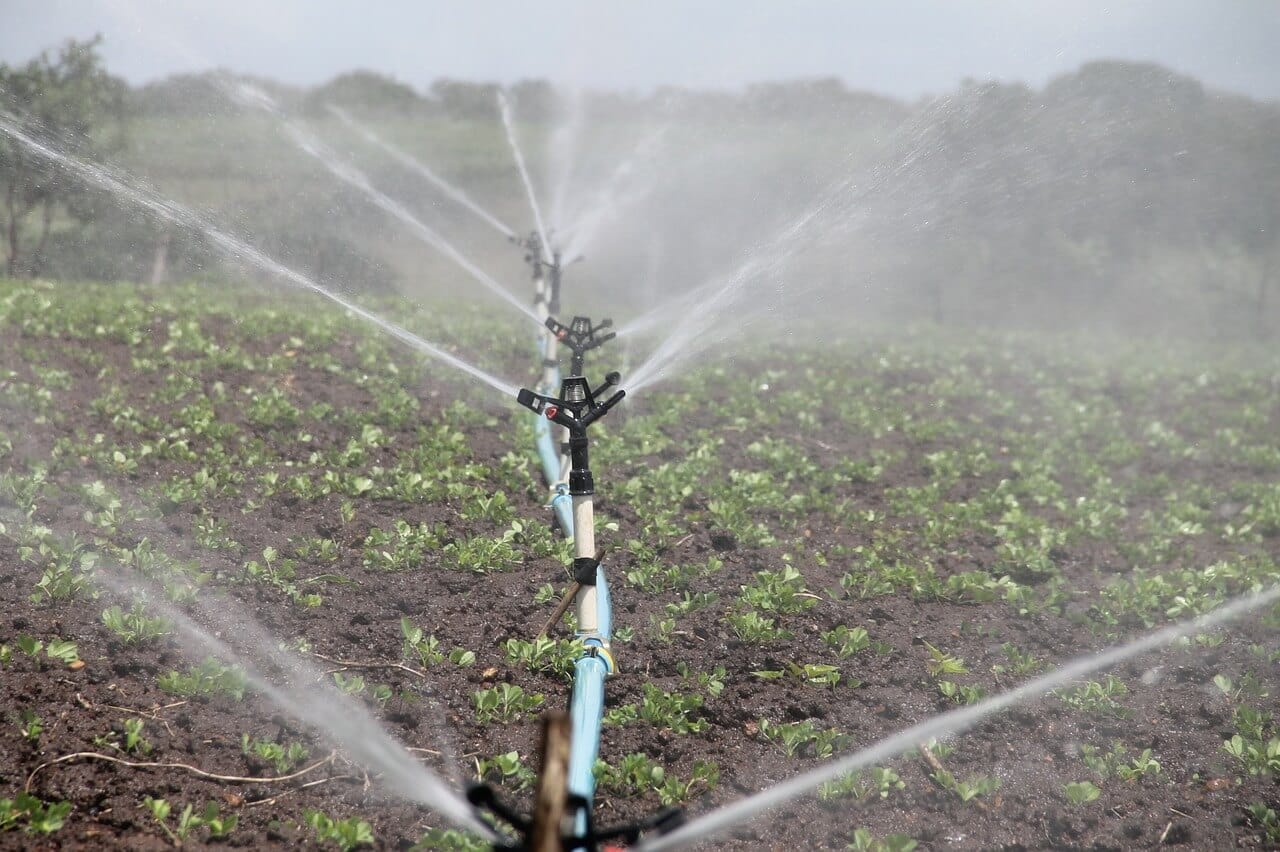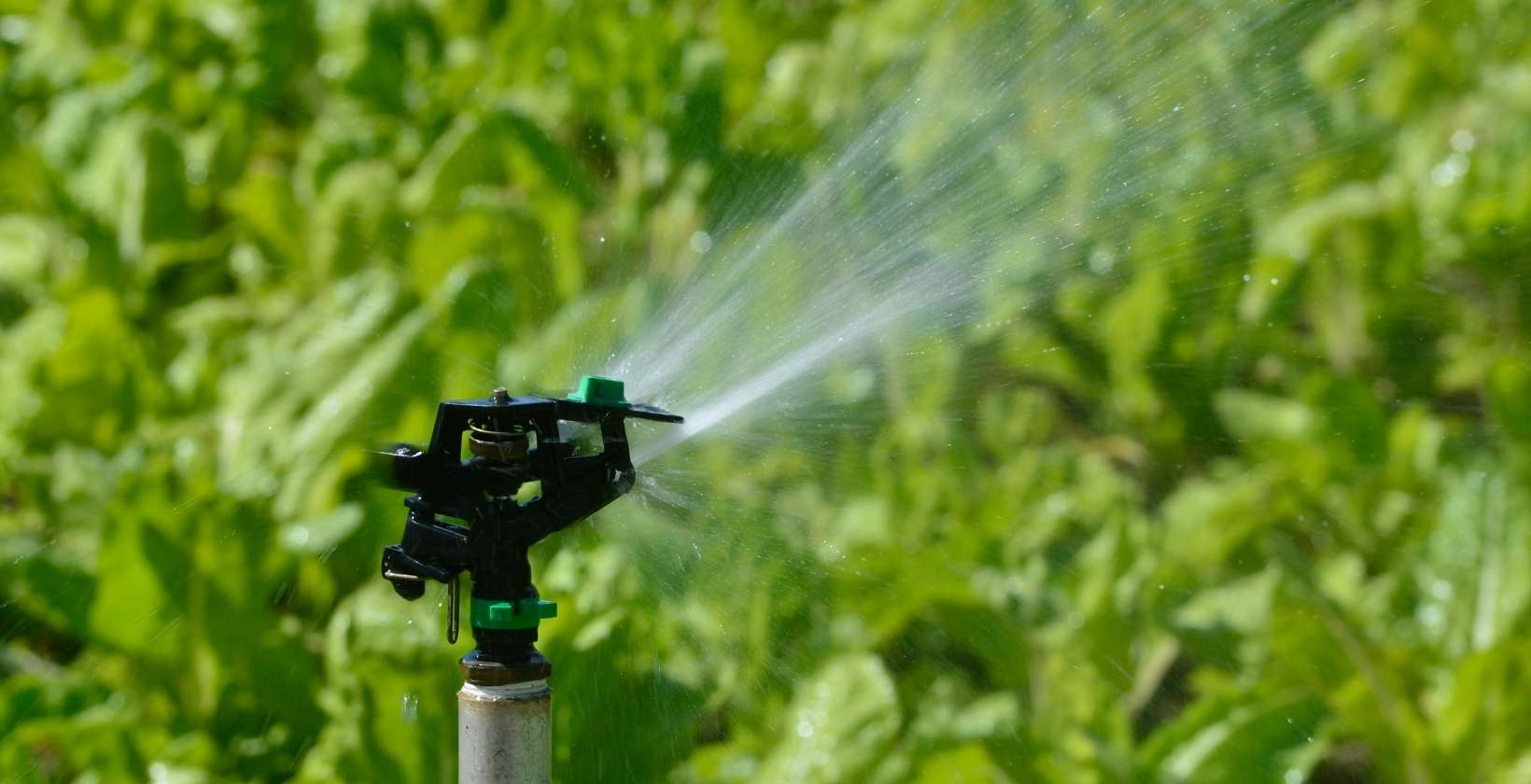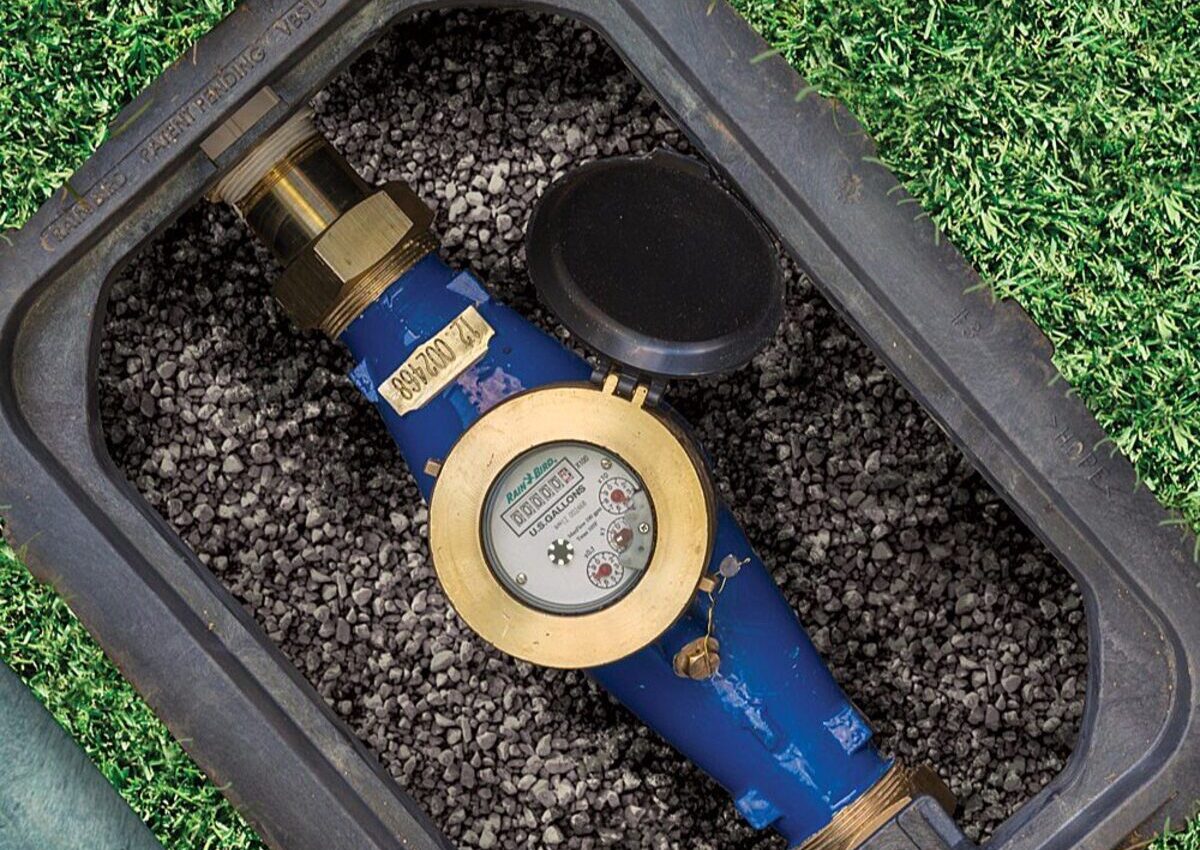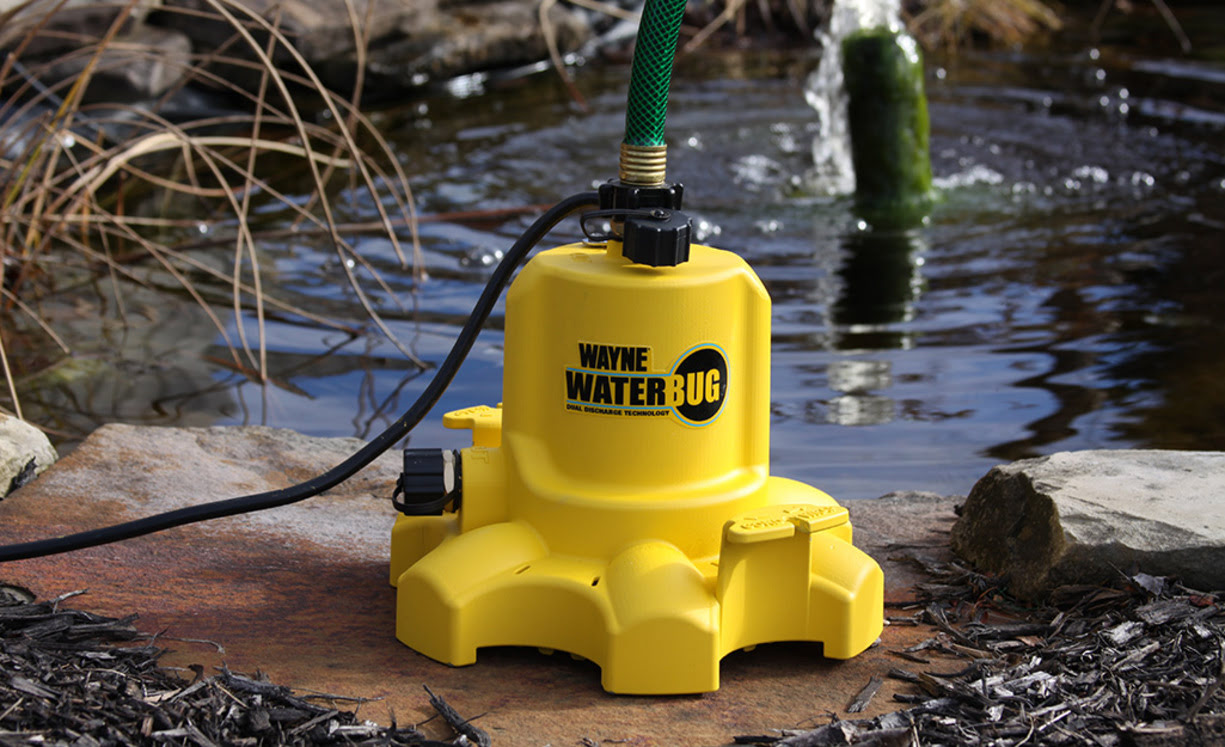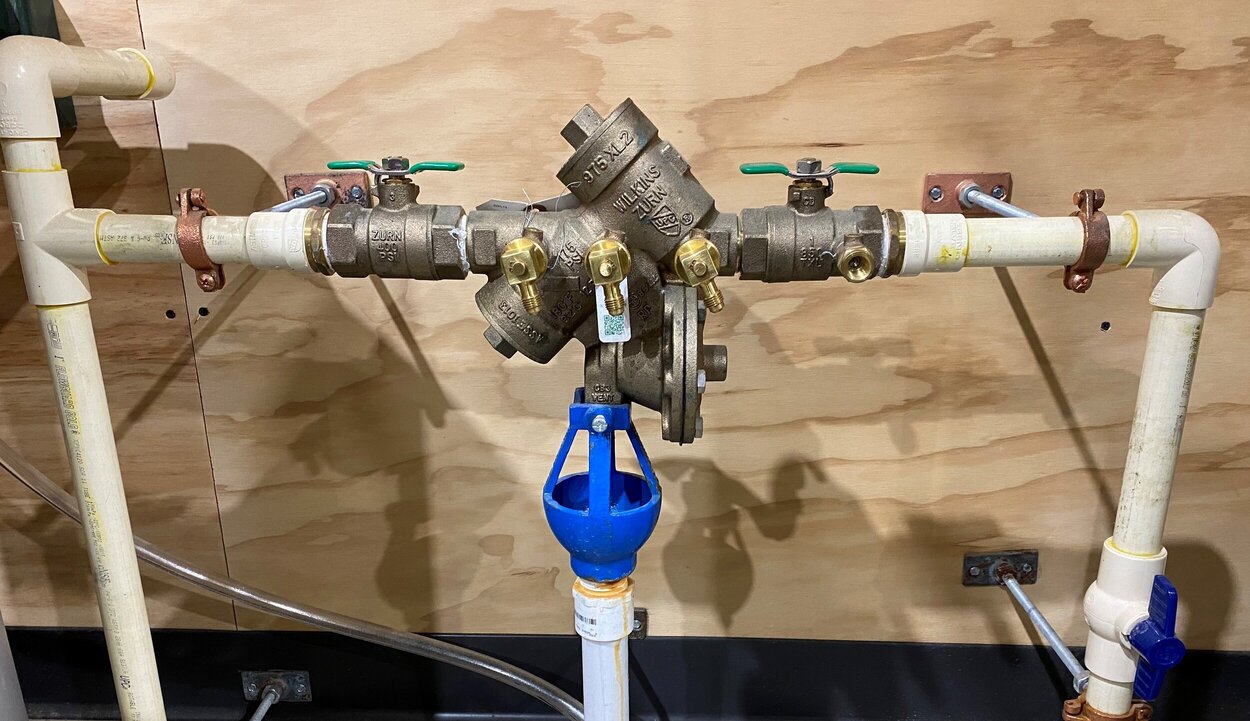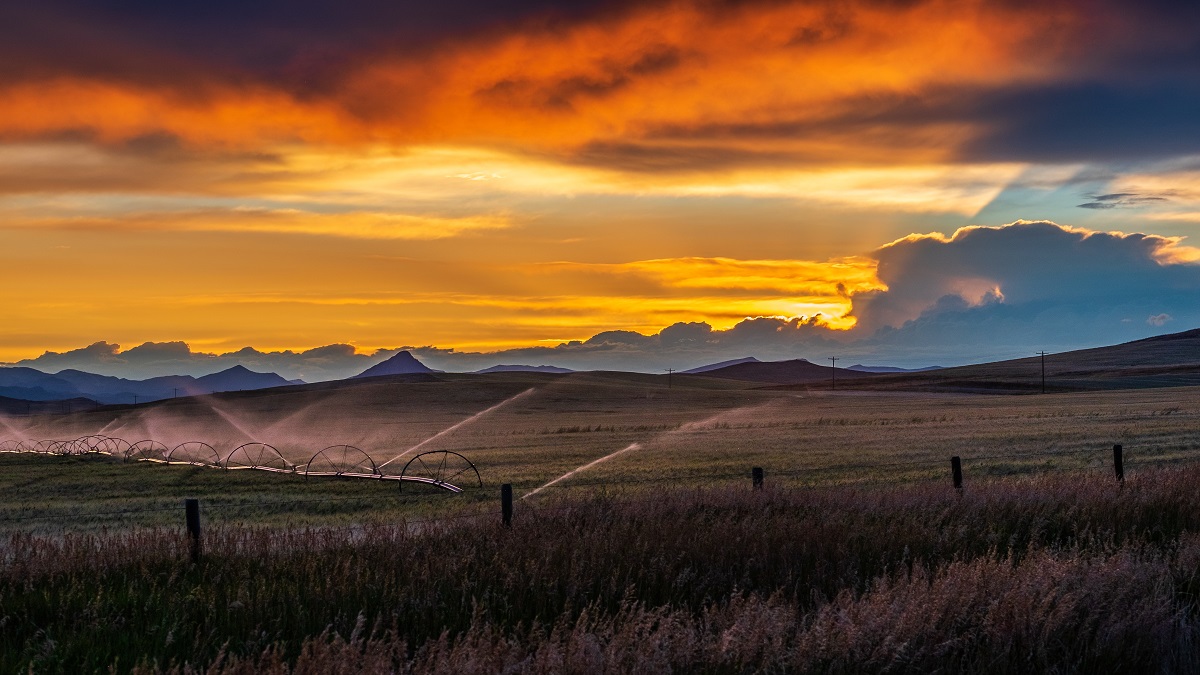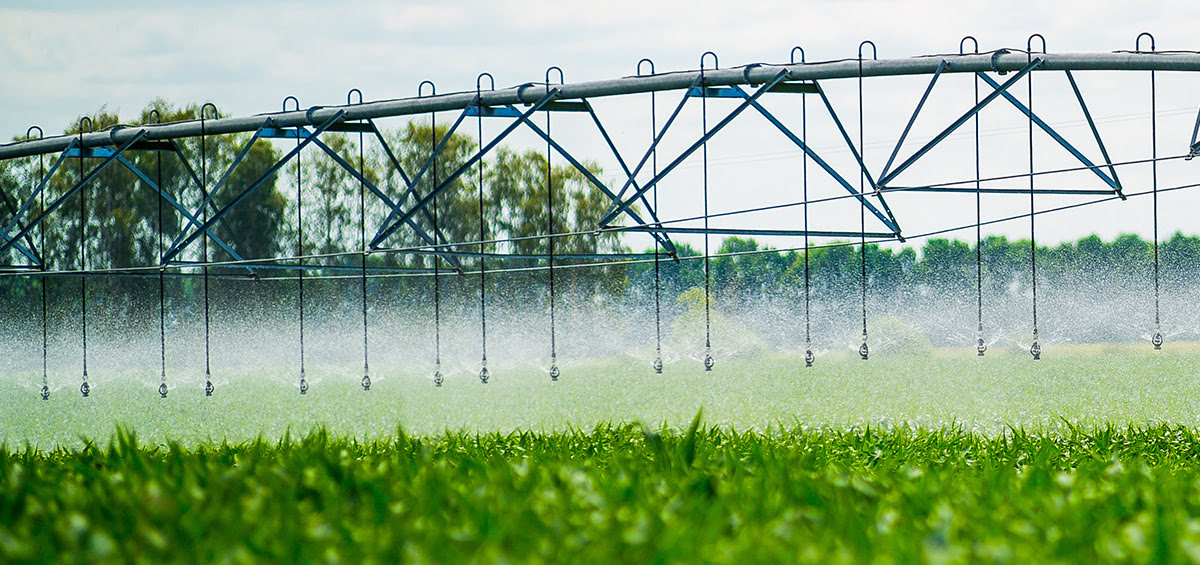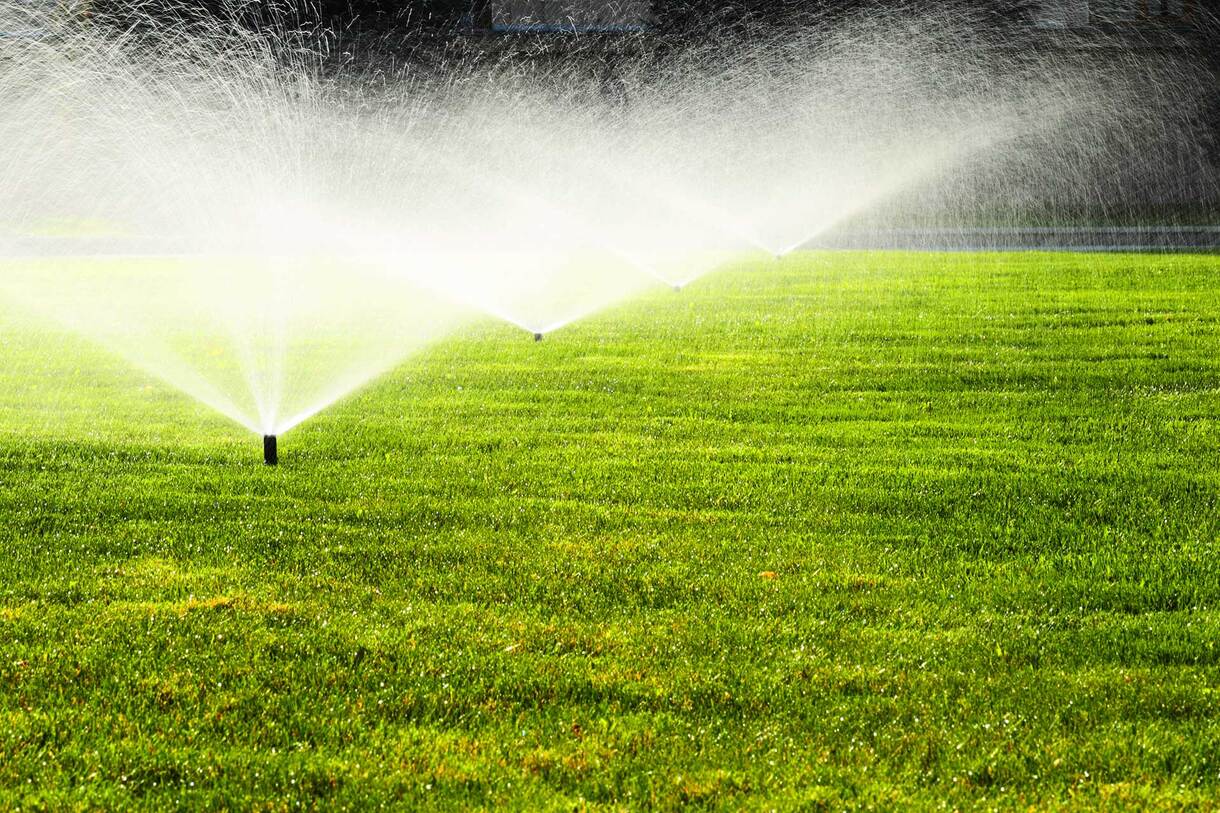Home>Gardening Tips and Tricks>Problem Solving>What Is Irrigation Repair
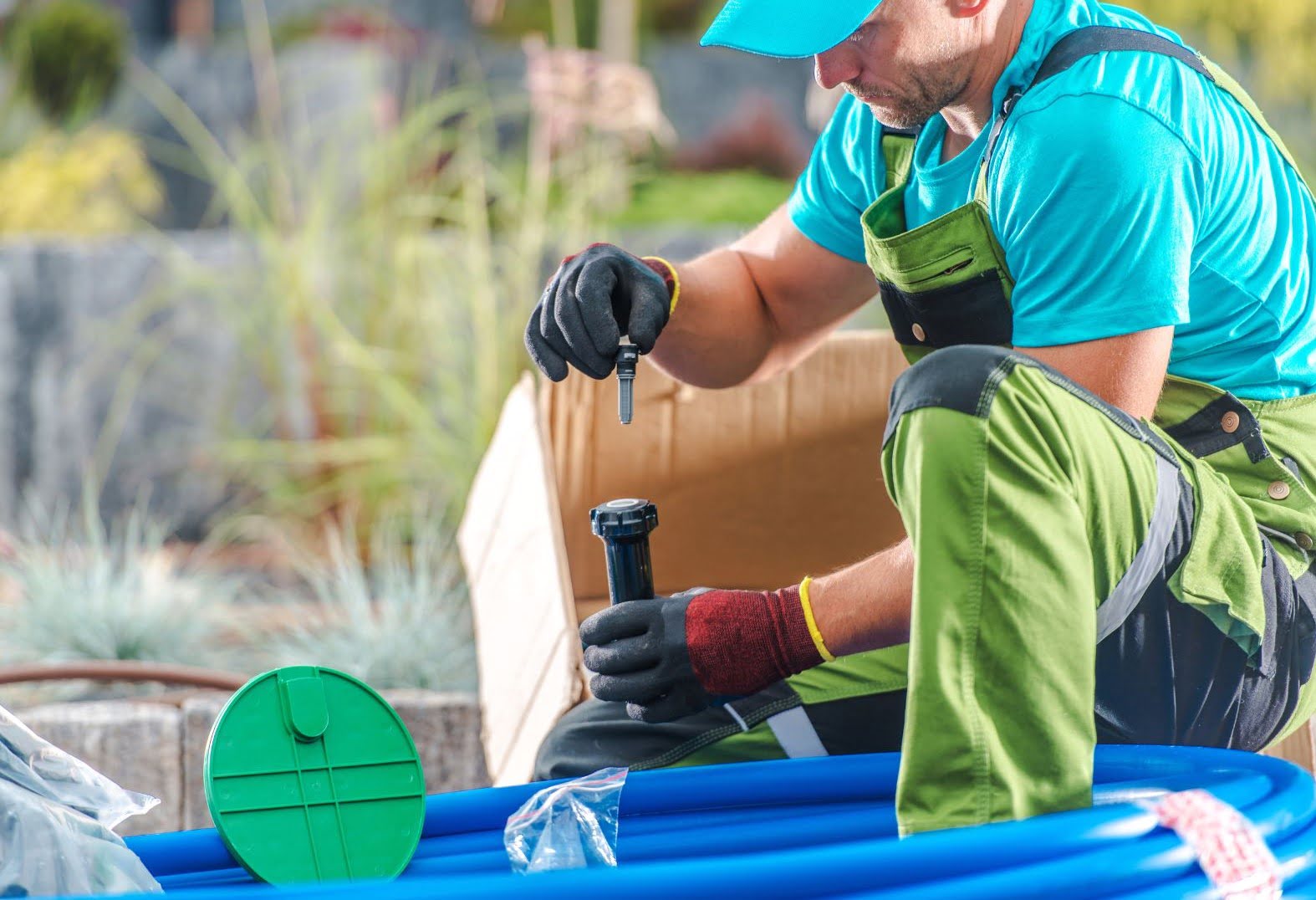

Problem Solving
What Is Irrigation Repair
Modified: January 22, 2024
Looking for problem-solving techniques for irrigation repair? Discover effective solutions to fix your irrigation system and keep your landscape healthy.
(Many of the links in this article redirect to a specific reviewed product. Your purchase of these products through affiliate links helps to generate commission for Chicagolandgardening.com, at no extra cost. Learn more)
Table of Contents
Introduction
An irrigation system is a vital component of maintaining a lush and healthy landscape. Whether you have a sprawling garden, a well-manicured lawn, or a commercial property with extensive greenery, a properly functioning irrigation system is essential to ensure the proper distribution of water to your plants.
However, just like any other mechanical system, irrigation systems can encounter issues that require timely repair. From leaky pipes to malfunctioning sprinkler heads, problems can arise that hinder the efficiency and effectiveness of your irrigation system.
In this article, we will delve into the world of irrigation repair, exploring the common issues that can arise, signs that indicate your system may need repair, and the importance of addressing these issues promptly. We will also provide some useful do-it-yourself tips for minor repairs and discuss when it is more appropriate to hire a professional irrigation repair service.
By understanding the intricacies of irrigation systems and the importance of timely repairs, you can ensure that your landscaping investment remains vibrant and healthy. Let’s dive in and explore the world of irrigation repair together.
Understanding Irrigation Systems
Before delving into the complexities of irrigation repair, it is crucial to have a basic understanding of how irrigation systems work. An irrigation system is designed to deliver water directly to plants, ensuring that they receive the appropriate amount of water for optimal growth.
There are several types of irrigation systems available, including sprinkler systems, drip irrigation systems, and surface irrigation systems. Each system has its own advantages and is suited for different types of landscapes and plantings.
A sprinkler system is the most common type of irrigation system and consists of a network of underground pipes with sprinkler heads strategically placed throughout the area. The sprinkler heads release pressurized water, simulating rainfall and evenly distributing it across the landscape.
A drip irrigation system, on the other hand, delivers water directly to the plant’s roots through a series of tubes and emitters. This method minimizes water loss due to evaporation and delivers water precisely where it is needed, making it a highly efficient and water-saving option.
Surface irrigation systems, such as flood irrigation, involve flooding the entire area with water. This method is commonly used in agricultural settings where large quantities of water are needed to irrigate crops.
No matter the type of irrigation system you have, it is essential to ensure that it is properly installed and maintained to maximize its efficiency and lifespan. Regular inspections and maintenance, along with timely repairs, will help prolong the life of your system and prevent costly water wastage.
Understanding how your specific irrigation system functions will allow you to better identify potential issues and take appropriate action to address them. Next, we will explore some common problems that can arise with irrigation systems.
Common Issues with Irrigation Systems
While irrigation systems are designed to provide efficient and reliable watering for your landscape, they are not immune to issues that can arise over time. Understanding the common problems that can occur with irrigation systems will help you identify and tackle these issues before they cause significant damage. Here are some of the most common issues:
- Leaky Pipes: Leaks in the pipes can result from various factors such as age, tree root intrusion, or poor installation. These leaks can lead to water wastage, decreased water pressure, and uneven distribution of water across your landscape.
- Clogged Sprinkler Heads: Over time, sprinkler heads can become clogged by debris, dirt, or grass clippings. This can cause uneven water distribution, resulting in dry spots or overwatered areas.
- Malfunctioning Valves: Valves control the flow of water through the irrigation system. When a valve fails to open or close properly, it can disrupt the entire system, leading to water wastage and ineffective watering.
- Poorly Adjusted Sprinkler Heads: If the sprinkler heads are not properly adjusted, they may spray water in the wrong direction or outside the intended area. This can lead to wasted water and insufficient irrigation coverage.
- Electrical Issues: Many irrigation systems rely on electrical components to operate. Wiring problems or faulty controllers can cause the system to malfunction or not turn on at all.
These are just a few examples of the common issues that can occur with irrigation systems. Regular maintenance and inspection of your system will help identify these problems early on and prevent further damage.
Next, we will explore the telltale signs that indicate your irrigation system may be in need of repair.
Signs That Your Irrigation System Needs Repair
Recognizing the signs that your irrigation system is in need of repair is crucial in preventing further damage and ensuring efficient water distribution. Here are some common signs that indicate your irrigation system may require repair:
- Poor Water Pressure: If you notice a significant decrease in water pressure from your sprinkler heads, it could be a sign of a leak or clog in the system. Low water pressure can result in inadequate watering and dry patches in your landscape.
- Uneven Water Distribution: If certain areas of your lawn or garden are consistently dry or overwatered, this may indicate a problem with the sprinkler heads or the overall system. Uneven water distribution can harm the health of your plants and lead to a patchy and unhealthy landscape.
- Water Pooling or Flooding: If you notice pooling or flooding in certain areas of your landscape, it could indicate a broken or malfunctioning sprinkler head or valve. These issues can result in excessive water runoff and waste.
- Unusual Noises: If you hear strange noises coming from your irrigation system, such as hissing or gurgling sounds, it could be a sign of a leak or water pressure imbalance. These issues should be addressed promptly to prevent further damage.
- High Water Bills: A sudden increase in your water bills without a significant change in water usage patterns can be a signal that your irrigation system is leaking or not functioning efficiently. Monitoring your water bills can help detect and address hidden issues before they become costly.
Being vigilant and attentive to these signs will help you identify potential problems with your irrigation system early on. Prompt repair and maintenance can save you money, conserve water, and maintain a healthy and vibrant landscape.
Up next, we will explore the importance of timely irrigation repair.
Importance of Timely Irrigation Repair
Timely irrigation repair is essential for several reasons. Ignoring or delaying repairs can lead to significant consequences that not only affect the health and appearance of your landscape but also impact your water bills and the environment. Here’s why timely irrigation repair is crucial:
- Water Conservation: A malfunctioning irrigation system can waste a significant amount of water through leaks, overwatering, or ineffective distribution. By promptly repairing any issues, you can conserve water and reduce unnecessary water consumption, helping to preserve this valuable resource.
- Plant Health: Inadequate watering or uneven water distribution can harm the health and growth of your plants. Dry or overwatered areas can lead to stressed plants, root rot, and disease, ultimately resulting in a lackluster and unhealthy landscape. By addressing irrigation issues promptly, you can ensure optimal conditions for your plants to thrive.
- Preventing Property Damage: A faulty irrigation system can lead to water pooling, flooding, and erosion in your landscape. These issues can cause damage to your property’s foundation, structures, and hardscape features. Timely repairs can prevent costly damage and maintain the integrity of your property.
- Cost Savings: Fixing irrigation system issues early can save you money in the long run. Leaks and inefficiencies can lead to unnecessarily high water bills. By addressing these problems promptly, you can prevent water wastage and reduce your water bills.
- Environmental Responsibility: As responsible stewards of the environment, it is important to minimize our impact on natural resources. By repairing irrigation systems and promoting efficient water usage, we contribute to a healthier and more sustainable environment.
Overall, timely irrigation repair ensures water conservation, promotes plant health, prevents property damage, saves money, and demonstrates environmental responsibility. Regular inspection and maintenance of your irrigation system, coupled with prompt repairs, will help you enjoy a beautiful and thriving landscape while minimizing the negative impacts.
In the next section, we will provide some useful do-it-yourself tips for minor irrigation system repairs.
DIY Tips for Irrigation System Repair
While some irrigation system repairs may require the expertise of a professional, there are several minor issues that you can tackle yourself. Here are some useful do-it-yourself tips for irrigation system repair:
- Inspect for Leaks: Regularly inspect your irrigation system for any signs of leaks. Look for soggy or overly wet areas in your landscape, as well as any noticeable water pooling. If you spot a leak, determine the source and replace the damaged pipe or fitting.
- Clean and Adjust Sprinkler Heads: Periodically clean the nozzles and filters of your sprinkler heads to remove debris, dirt, or mineral build-up. Replace any damaged or worn-out nozzles. Ensure that the sprinkler heads are properly adjusted to prevent overspray or dry spots.
- Check Valves and Connections: Inspect the valves in your irrigation system to ensure they are functioning correctly. Replace any faulty valves or solenoids. Also, check the connections between the pipes for any loose or damaged fittings and tighten or replace them as necessary.
- Program Controller Correctly: Review the programming on your irrigation controller to ensure it is set correctly for your landscape’s watering needs. Adjust the watering frequency and duration based on the season and weather conditions to avoid overwatering or underwatering.
- Clear Blocked Sprinkler Heads: If you notice a sprinkler head that is not spraying properly, it may be clogged. Use a small, pointed tool to clear any debris or dirt from the nozzle. If the problem persists, replace the sprinkler head.
Remember to always shut off the water supply to your irrigation system before attempting any repairs. If you are unsure or uncomfortable with any aspect of the repair process, it is best to consult a professional irrigation repair service to avoid further damage.
By addressing minor repairs on your own, you can save time and money while ensuring that your irrigation system operates efficiently and effectively.
Next, we will explore when it is more appropriate to hire a professional irrigation repair service.
Hiring a Professional Irrigation Repair Service
While DIY repairs can be effective for minor issues, there are situations where hiring a professional irrigation repair service is the most appropriate course of action. Here are some instances when it is beneficial to seek the expertise of professionals:
- Complex Repairs: If you are facing complex issues with your irrigation system, such as significant pipe leaks, electrical problems, or extensive damage, it is recommended to enlist the help of professionals. They have the knowledge, experience, and specialized equipment to handle complex repairs effectively and efficiently.
- System Design and Installation: If you are considering installing a new irrigation system or redesigning your existing system, hiring professionals is essential. They can assess your landscape’s needs, design an efficient system, and expertly install the necessary components, ensuring optimal watering for your plants.
- Expert Troubleshooting: If you are experiencing persistent issues with your irrigation system that you are unable to resolve on your own, professionals can offer expert troubleshooting. They can identify the root cause of the problem and provide effective solutions, saving you time and frustration.
- Time and Convenience: Hiring professionals for irrigation repair frees up your time and allows you to focus on other aspects of your life or property maintenance. They have the expertise to complete the repairs quickly and efficiently, saving you valuable time and effort.
- Preventive Maintenance: Regular maintenance is essential for the longevity and efficient operation of your irrigation system. Professional irrigation repair services offer routine maintenance programs that include inspections, adjustments, and timely repairs. This proactive approach can help prevent major problems and ensure your system operates optimally.
When choosing a professional irrigation repair service, consider their reputation, experience, and customer reviews. Look for certifications and licenses, as well as warranties and guarantees for their work. It is also beneficial to seek recommendations from friends, neighbors, or landscaping professionals who have used their services.
By entrusting your irrigation system repair and maintenance to professionals, you can have peace of mind knowing that your system is in capable hands, ensuring the longevity and efficiency of your irrigation system.
Now that we have explored the importance of hiring professionals, let’s conclude our discussion on irrigation repair.
Conclusion
Maintaining a properly functioning irrigation system is essential for a healthy and vibrant landscape. By understanding the common issues that can arise, recognizing the signs that indicate your system may need repair, and addressing these issues promptly, you can ensure the longevity and efficiency of your irrigation system.
From leaky pipes and clogged sprinkler heads to malfunctioning valves and electrical issues, there are various components of an irrigation system that may require attention. Timely irrigation repair is crucial for water conservation, plant health, preventing property damage, and cost savings.
While some repairs can be tackled with DIY techniques, it is important to know when it is best to hire a professional irrigation repair service. Complex repairs, system design and installation, expert troubleshooting, time and convenience, and preventive maintenance are all situations where professionals can provide invaluable expertise.
Remember to regularly inspect your irrigation system, clean and adjust sprinkler heads, check valves and connections, and program the controller correctly to minimize the risk of issues and optimize water distribution.
By taking a proactive approach to irrigation system repair and maintenance, you can enjoy a beautifully landscaped environment while conserving water, saving money, and demonstrating environmental responsibility.
So, ensure the health and vitality of your landscape by addressing irrigation system issues promptly and enlisting the help of professionals when needed. Your plants, your wallet, and the environment will thank you.
